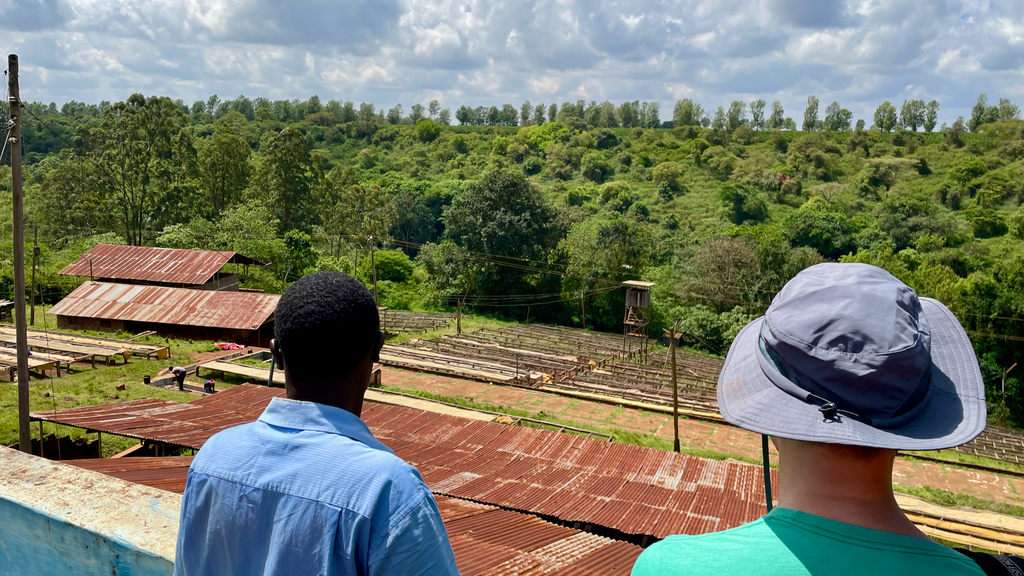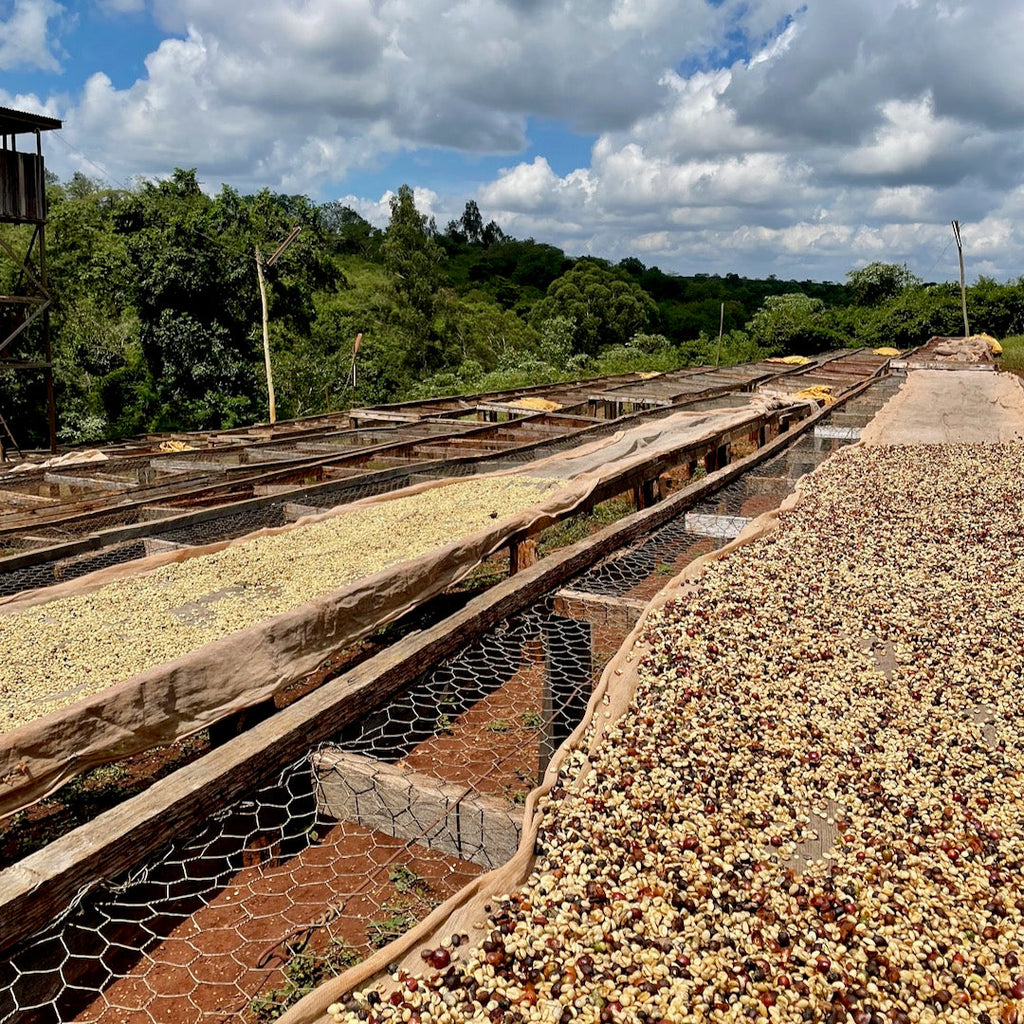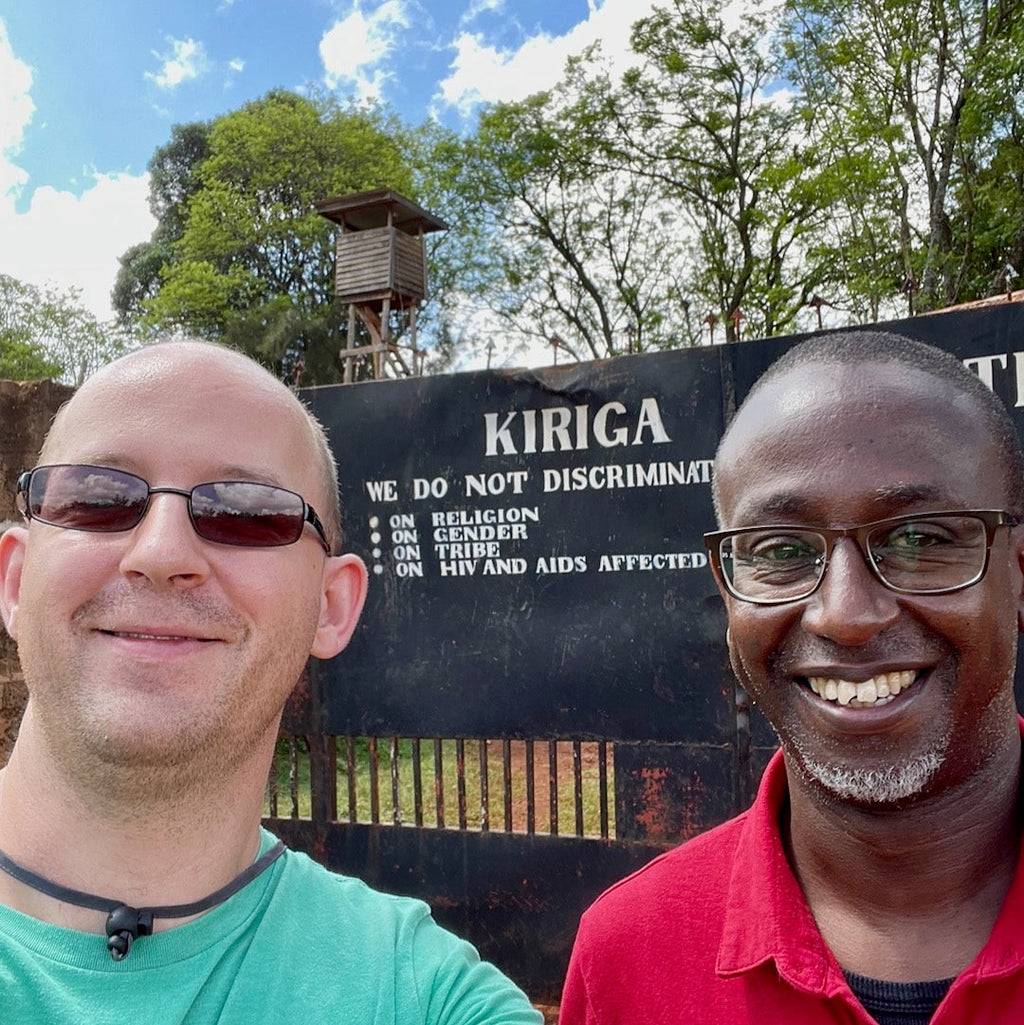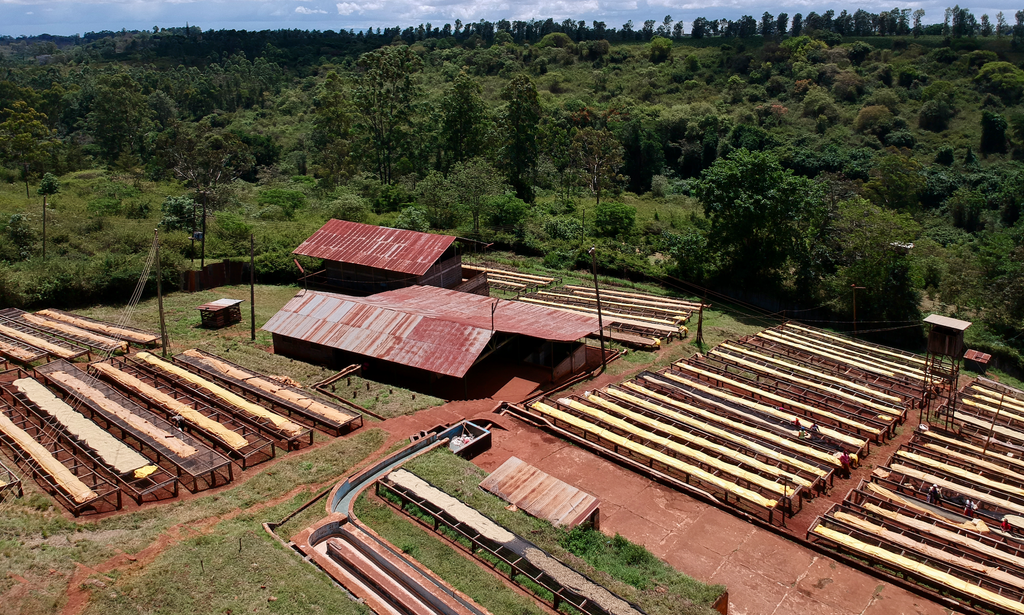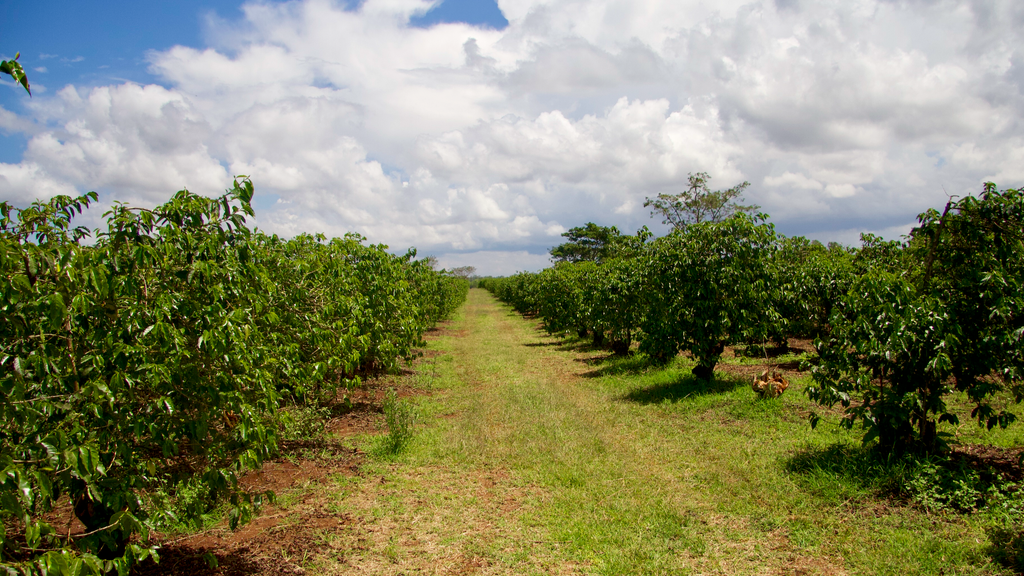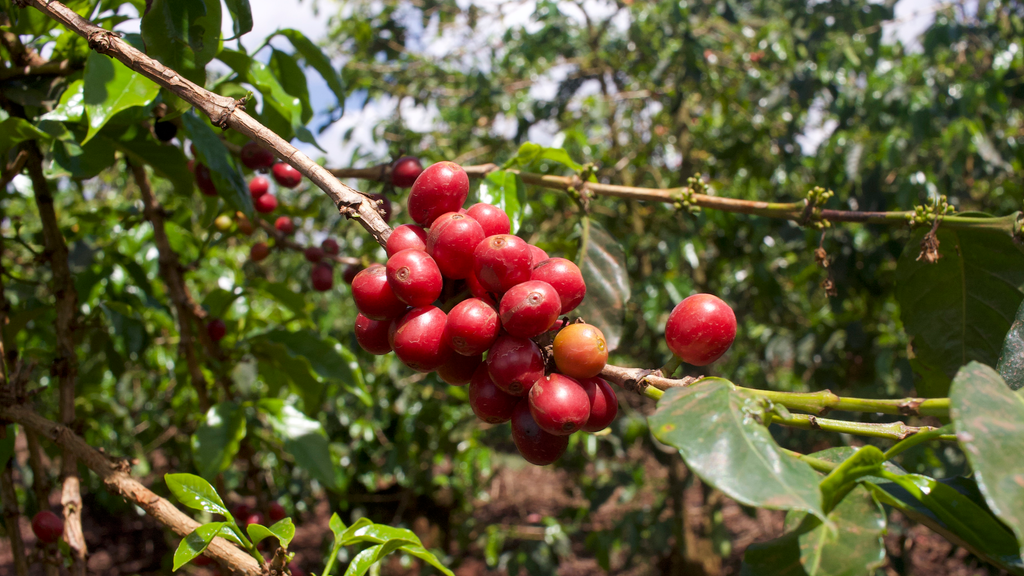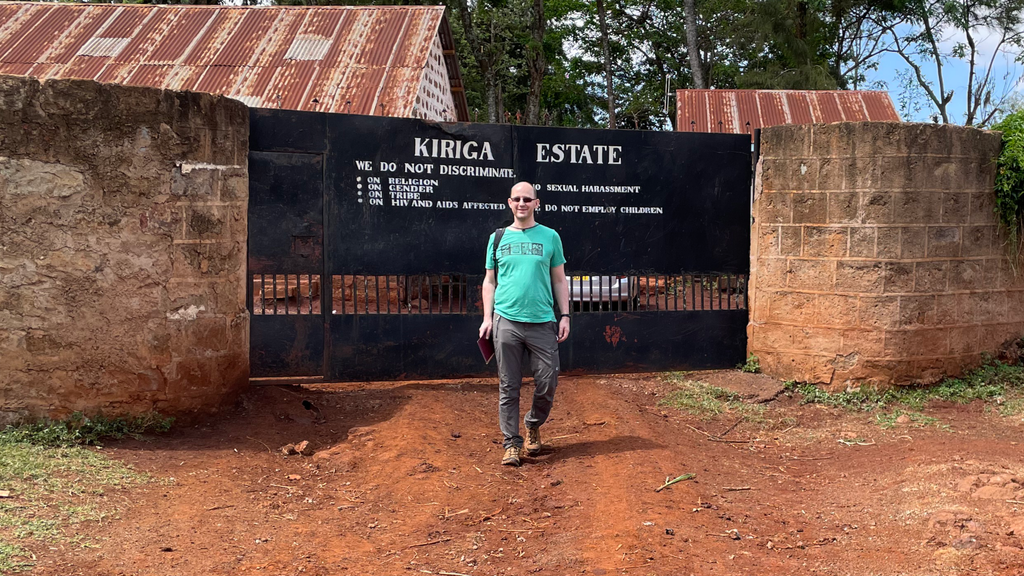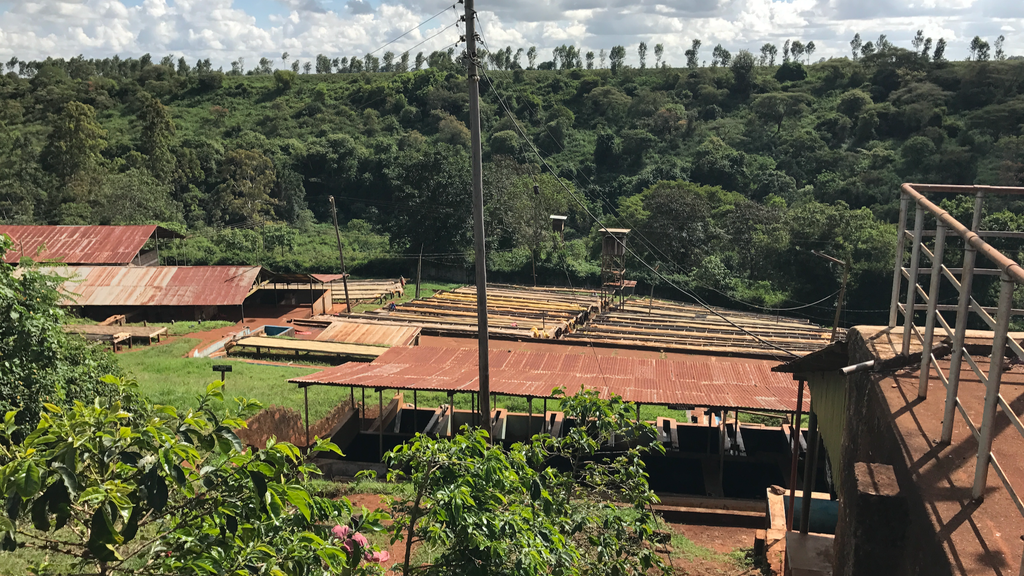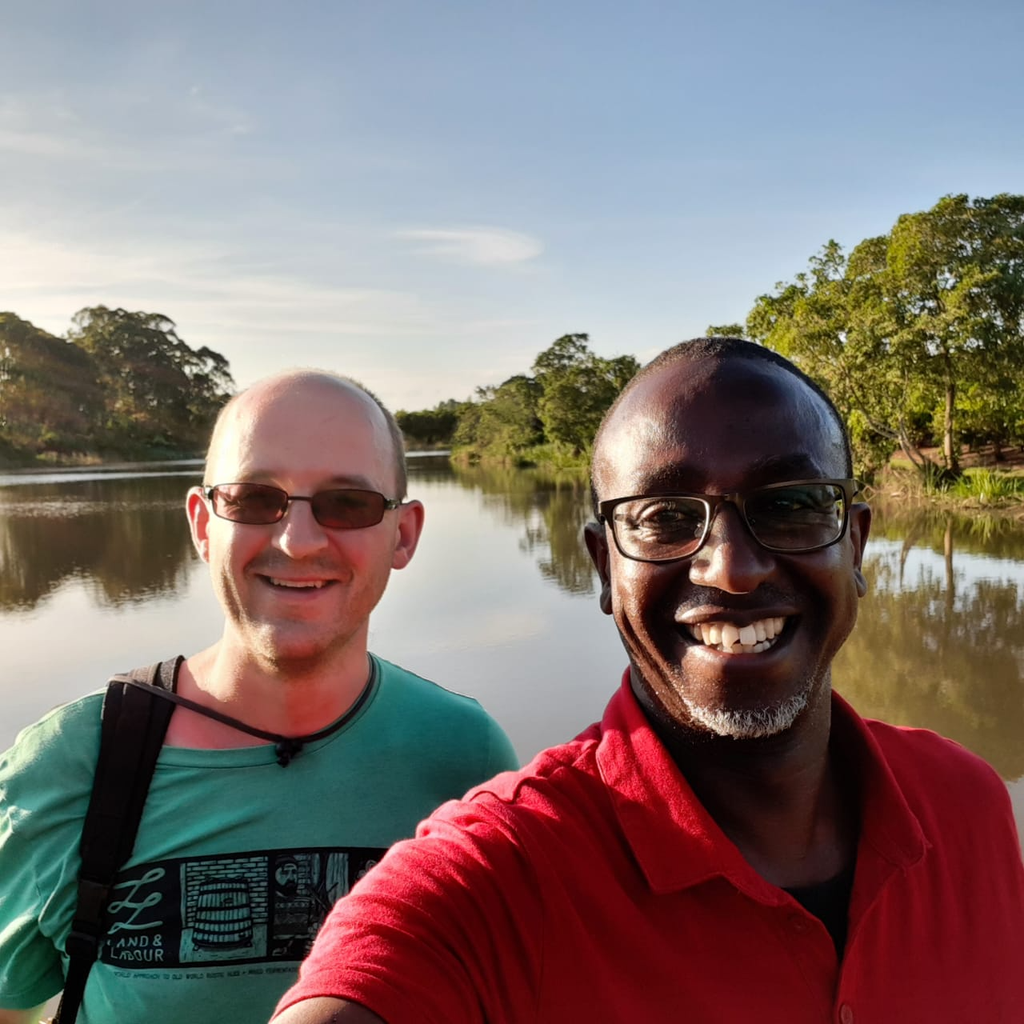The Story of Kiriga Estate: A Legacy Brewed in Murang’a
The first coffee bush at Kiriga Estate was planted in approximately 1954 by colonial settlers. At about the same time, less than ten kilometres away along the same Kigio road, a young boy—Aloysius Gakunga, son of the chief for the larger Murang'a county—helped his father, Senior Chief Ndungíu Kagori, plant the first coffee seedling in the area. The area was known as Gaitegi village, Murang’a Location 1 (Loco One). A love affair with coffee had been born!
Several years went by, and the young boy grew up. He would often ride his bicycle along Kigio road and, as he passed the vast—by now well-established—coffee estates, he promised himself that he would one day own one of them.
He realised this dream in 1976.
The boy, Mr. A. N. Gakunga, sadly passed away in July 2014. By the time of his death, Mr. Gakunga had passed his love of coffee—and the mantle of Kiriga Coffee Estate—on to Dr. Brian Ndungíu Gakunga. Brian was his second child and the eldest son of his six children. According to Kikuyu cultural naming systems, Brian is named after Mr. Gakunga’s father, who was both his grandfather and the pioneer coffee farmer in the family.
Dr. Brian Gakunga is a well-known figure in Kenyan coffee circles. He is a founding member and former long-serving Honorary Secretary of the Kenya Coffee Producers Association, a national farmers’ organisation that promotes the economic and social interests of coffee farmers through active participation in both national and international forums. He also served as a Board Member and Chairman of the Transitional Exchange Committee—effectively the Chairman of the Nairobi Coffee Exchange—where over 90% of Kenya’s coffee is sold.
Currently, Brian is the Founding Chairman of the Africa Coffee Farmers’ Network, an organisation that represents the interests of coffee farmers across the continent. Its core mission is to improve the earnings of smallholder farmers and break the cycle of poverty—one way being through facilitating direct sales for farmers.
A Coffee Estate with Deep Roots and High Standards
Kiriga Estate sits between 1,550 and 1,650 metres above sea level. It is located approximately five kilometres from Thika town, an industrial hub in Kenya’s central region, and just four kilometres from the historic Blue Posts Hotel—home to the scenic Chania and Thika Falls. Thika lies about 50 kilometres northeast of Nairobi.
Administratively, Kiriga Coffee Estate falls within the Gatanga constituency of Murang’a County and is separated from Kiambu County by the Chania River, which also serves as a vital water source for the estate.
The estate spans approximately 130 acres (about 54 hectares under coffee cultivation) and is planted predominantly with the SL28 variety, globally celebrated for its exceptional cup quality.
A Closer Look at Kiriga’s Coffee Varieties
Kiriga Estate is home to a carefully selected mix of coffee varieties, each chosen for its unique strengths in cup quality, disease resistance, and adaptability to the estate’s high-altitude environment. Here's a closer look at the varieties cultivated on the estate:
SL28 – The Flagship of Kenyan Coffee
SL28 is the crown jewel of Kenyan coffee varieties. Developed in 1931 by Scott Agricultural Laboratories, it was selected from a drought-resistant variety originating in Tanganyika (modern-day Tanzania). SL28 is known for its exceptional cup quality, often described as having bright acidity, full body, and complex fruity notes—hallmarks of top-tier Kenyan coffee.
The trees are tall with green-tipped leaves and are relatively drought-resistant, making them well-suited to the estate’s elevation. However, they are susceptible to coffee leaf rust and coffee berry disease (CBD), which requires vigilant farm management.
Ruiru 11 – The Disease-Resistant Workhorse
Ruiru 11 was developed in the 1980s by the Coffee Research Foundation in response to devastating outbreaks of CBD. It is a compact, high-yielding hybrid that combines the quality traits of SL28 and SL34 with the disease resistance of robusta and other resistant strains.
Ruiru 11 trees are smaller and more manageable, allowing for denser planting and easier harvesting. While the cup quality is generally good, it may not always match the complexity of SL28, which is why Kiriga Estate maintains a balance between the two.
K7 – A Balanced Performer
K7 was selected in the 1930s from French Mission coffee at Legetet Estate in Muhoroni. It shares many characteristics with SL28, including good cup quality and adaptability to high altitudes. However, K7 offers better resistance to leaf rust and is slightly more robust under less-than-ideal conditions.
At Kiriga, K7 is grown in smaller quantities but plays an important role in maintaining genetic diversity and resilience across the estate.
Batian – The New Generation
Batian is the newest addition to Kiriga’s varietal lineup. Released in 2010 by the Coffee Research Institute, it was bred to combine high cup quality with resistance to both CBD and leaf rust. It matures faster than SL28 and SL34, producing cherries within two years of planting, compared to three or more for traditional varieties.
Batian is still being evaluated by many farmers, but early results at Kiriga have been promising. Its inclusion reflects the estate’s forward-thinking approach to sustainability and quality.
About 60% of the estate’s production is AA/AB grade coffee, reflecting its commitment to quality.
From Seedling to Cup: A Fully Integrated Operation
All coffee activities at Kiriga are carried out at the factory level. This includes everything from nursery management to pruning, weed control, nutrition, irrigation, basin digging, disease control, infilling, mulching, and planting. Wet mill operations—such as cherry selection, depulping, fermentation, washing, and drying—are also conducted on-site.
Once processed, Kiriga delivers both parchment coffee and Mbuni (naturals) to a commercial dry mill for milling and grading, preparing the beans for sale at auction or through indirect channels.
In 2015, the estate undertook a bold rejuvenation initiative. Over 40% of the old coffee heads were removed—well above the recommended 25%—to encourage new growth. While this temporarily reduced yields, it significantly improved the quality of the beans, resulting in bolder, more flavourful coffee with the signature “Kiriga characteristics.”
More Than Just Coffee: A Model of Agricultural Diversity
Kiriga Estate is more than a coffee farm—it’s a thriving, diversified agricultural enterprise. In addition to coffee, the estate raises shoats (a delightful term for sheep and goats), maintains a dairy operation, and has the potential for fish farming. The dairy also supports a local preschool, ensuring children have access to fresh milk.
The estate is occasionally visited by two hippos and is home to a family of monkeys and a variety of birdlife, adding to its ecological richness.
Despite the high cost of electricity, Kiriga irrigates all its coffee trees during the dry season to maintain its high standards. This commitment to quality, even in the face of rising operational costs, is a testament to the estate’s dedication to excellence.
Looking Ahead
Many of the surrounding farms near Kiriga have been sold off to make way for housing developments. While this presents a long-term challenge, in the short term, it has created an unexpected benefit: a larger pool of skilled coffee pickers, many of whom previously worked on neighbouring farms.
As urbanisation continues to reshape the landscape, Kiriga Estate remains a proud symbol of resilience, tradition, and innovation in Kenyan coffee farming.

